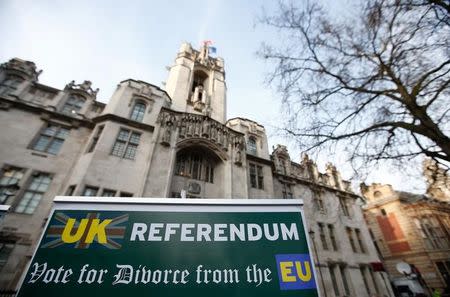Lawyer challenging government in Brexit trigger case says parliament motion is not enough

LONDON (Reuters) - A motion to be debated in parliament on Wednesday which is set to back Prime Minister Theresa May's Brexit timetable does not impact on a legal battle over who has the right to trigger EU divorce talks, the UK Supreme Court heard. Parliament will vote on an opposition Labour Party motion on Wednesday to which the government has proposed an amendment which seeks backing for May's timetable to trigger Article 50 of the Lisbon Treaty, the formal EU exit process, by the end of March in return for details of her Brexit plans. The government is currently fighting a ruling at the Supreme Court which said ministers cannot trigger Article 50 without parliamentary approval and David Pannick, the lawyer who is leading the challenge to the government's position, said Wednesday's motion had no bearing on the case. "The court knows a motion may be approved in the House of Commons today," Pannick told the Supreme Court. "I want to be very clear about this. Our submission is that a motion in parliament does not affect, cannot affect, the legal issues in this case." (Reporting by Michael Holden; editing by Stephen Addison)

